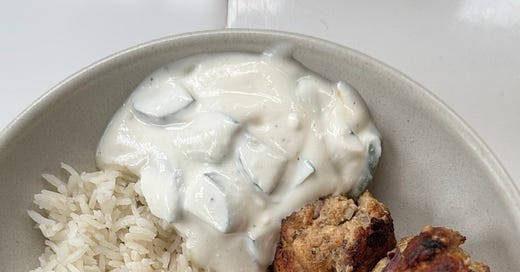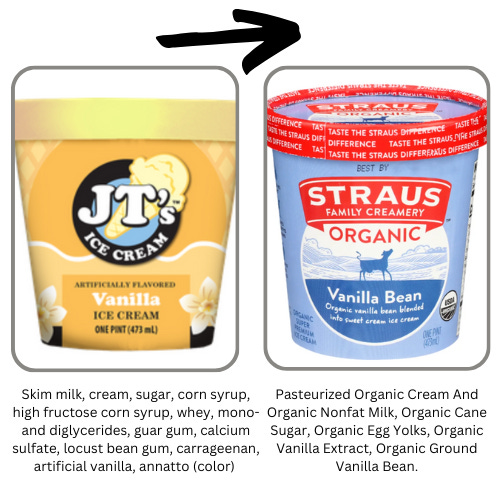Is your pantry really full of "poison"?
Extremist food language informs our perception of the foods we eat and those we vilify.
Fringe characters in the food world have long used extreme language to describe the food we eat. Robert F. Kennedy Jr.’s administration has increasingly utilized emotionally charged language throughout his tenure as the Secretary of Health and Human Services, thus bringing fringe tactics mainstream.
In a recent interview, RFK Jr. can be heard saying “Sugar is poison.” Back in a January Senate Committee meeting, he said that food makers have been permitted to “mass poison American children.” This is very much in line with his broader vilification of Big Food.
If you venture further into food media, you’ll also see many other heavily connoted words thrown about like “chemicals,” “toxic,” and, on the other end of the spectrum, “clean.”
They’re utilized to elicit a strong emotional reaction from the listener. And, while I’m not sympathetic to the ultra processed food industry that dominates the American diet, I am a firm believer in using accurate language to inform how we talk about it.
For one, I have to stifle a giggle whenever I see a self satisfied social media comment slandering Oreos for being made up of chemicals. Because, after all, food is necessarily made up of chemicals.
In my research, it does appear that some public health experts also use similar terminology to what we’re hearing from RFK Jr. Words like “toxic,” and “poison,” appear in academic research. For example, this review titled The Dose Makes the Poison: Sugar and Obesity in the United States – a Review. Public health experts are ringing the alarm bells (and have been for some time).
When we hear words like “toxic,” and “poison,” I still believe it’s important to interrogate the motivations of the person using the word. Let’s take Vani Hari for example. She’s an outspoken critic of the food industry. It’s awesome that she’s so fired up about the kinds of food we put in our body.
It’s also worth noting that she’s heavily monetarily invested in getting people to fear Big Food. She’s one of the cofounders of a protein powder company, Truvani, that bills itself as “plant protein with no nasty ingredients” (emphasis, mine).
One of her recent Instagram posts reads, “American companies must stop poisoning us with toxic chemicals they don’t use overseas.” Criticizing a product or system and then providing a marketable solution is a tale as old as time because it works.
One other potential downside of charged language in this space has to do with inferred morality. Within this system, someone who eats “clean” food is morally superior to someone who eats a “toxic” diet. Let’s save the moral judgement for the Big Food companies that continually value profit over public health.
In many ways our current epidemic of diet induced sickness is worthy of a dramatic intervention, which can include strategic nomenclature. I am a staunch advocate for a transition to food systems that help people stay healthy and improve longterm health outcomes, let’s just do this with our eyes wide open.
Cooking affordable meals that are decidedly not ultra processed is doable and I want to show you how, dammit! Each newsletter, I’ll share one recipe to get your creative cooking juices ~flowing~.
I had an illuminating conversation this week with a gut health practitioner who advises her patients to fill half their plate with non-starchy vegetables, a quarter with protein and a quarter with carbohydrates. This is my interpretation of that advice (plus I added on some arugula). I love micro and macronutrients.
Turkey Meatballs + Tzatziki
Meatball Ingredients:
1 lb ground turkey
1/4 cup diced red onion
2 cloves pressed garlic, minced
1 egg
1/2 cup breadcrumbs
1 tsp salt
1/2 tsp pepper
Tzatziki Ingredients
1 cup Greek Yogurt
1 diced cucumber
2 tbsp lemon juice
1 clove pressed garlic
Salt + pepper to taste
Serve with:
Rice
Vegetables (tomatoes + avocado, a fruit masquerading as a vegetable, were great additions!)
Directions:
Combine all the meatball ingredients in a bowl, then form into small balls
Fry the balls in a saucepan with olive oil until cooked through
Combine all tzatziki ingredients in a bowl
Plate the meal: add meatballs, tzatziki and your preferred vegetables to a bowl
I encourage you to flip around the label on your favorite packaged foods. Doing this is one step towards in decreasing the amount of ultra processed foods you’re regularly consuming. Here’s one switch I make:
I want to acknowledge that the option on the left is considerably cheaper ($4.99) than the option on the right ($7.99), but when you dive a bit further into what you’re getting for that money, that delta really narrows in my mind.
I had some of JT’s Ice Cream at a friends house recently and it took forever to melt, despite sitting out on the counter for at least 30 minutes. The many gums, like carrageenan, are especially helpful for preventing the ice cream from melting. Gums are one of the defining characteristics of Ultra Processed Foods, and thus, something to mightily limit in your diet.
I could also drone on about how organic is better and that the dairy stewardship of Straus is unparalleled, but the only thing I’ll add is that the option on the right is INFINITELY more delicious. It’s velvety, rich and, made with real vanilla bean. I hope that makes your decision a little easier.
Learn more about the author here. Thanks for letting me riff about the food topics that keep me up at night!








Yes